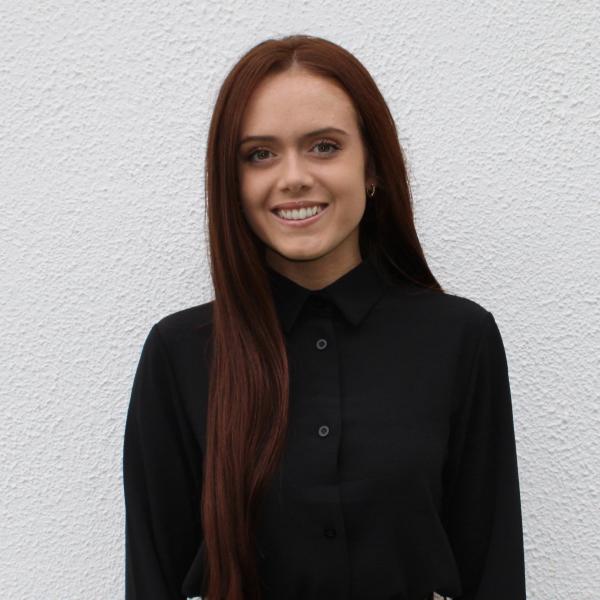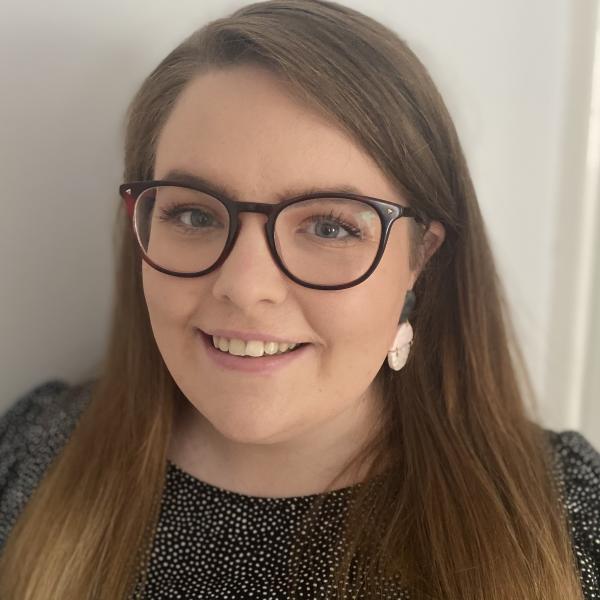Irish Cancer Society awards three new PhD Scholarships to researchers in Social Science, Nursing, and Allied Health
The Irish Cancer Society is delighted to announce that it has awarded three PhD Scholarships in 2021 to researchers in Social Science, Nursing, and Allied Health.
The objective of the scholarship is to offer excellent graduates the opportunity to undertake postgraduate training in cancer research. The scholarship provides the awardee with a monthly stipend in addition to research running costs, costs of sharing the research findings, and costs associated with Public and Patient Involvement.
In line with the Irish Cancer Society Strategy (2020-2025), we are expanding our investment in survivorship research, which aims to improve the care, outcomes, and quality of life of people affected by cancer. The three awardees represent Ireland’s best and brightest early-stage cancer researchers and their projects will undoubtedly have a positive impact on people’s lives.

- Jennifer Fitzpatrick, Athlone Institute of Technology (AIT)
- Project title: The development, implementation and evaluation of a health behaviour change intervention for adolescents who have completed active cancer treatment
The Irish Cancer Society and AIT jointly fund Jennifer’s PhD award under the supervisory team of Dr Mairead Cantwell (AIT), Dr Kieran Dowd (AIT), Professor Niall Moyna (DCU), and Cliona Godwin (Our Lady's Children's Hospital, Crumlin). A graduate of Physical Activity and Health Science at AIT, Jennifer’s project focuses on whether teenagers who have completed active cancer treatment would participate in, and complete, a physical activity and dietary behaviour programme. The project will be to assess the impact of the programme on teenagers’ physical function and quality of life.
Teenagers who have completed active cancer treatment may experience negative treatment- and cancer-related side effects including fatigue, obesity, and poor fitness, and a decrease in quality of life. Research has shown that physical activity can improve the health and well-being of adult survivors of cancer and Jennifer believes it may also be possible to lessen the negative effects of childhood cancer.
In describing her reasons for pursuing a PhD, Jennifer explains, “My passion for conducting cancer research stems from both personal and academic motivations, of first-hand family experiences of cancer and experience gained throughout my undergraduate degree. I aspire to advocate for the inclusion of physical activity and dietary behaviour interventions in cancer care to optimise the health, well-being and quality of life of teenagers who have been affected by cancer.”
A PhD is a long and challenging journey. However, Jennifer hopes to gain valuable experience from the journey:
“My PhD journey will allow for both clinical and academic skills and experiences to be obtained. I aim to improve my knowledge on the development and implementation of a physical activity and dietary behaviour intervention for teenagers who have completed active cancer treatment.”

- Chloe Moore, Dublin City University (DCU)
- Project title: ENHANCE- EnhaNcing Health literAcy amoNg Cancer caregivErs
Chloe is a graduate of psychology having completed her undergraduate degree (Maynooth University) and her Master’s degree (DCU) on the topic. Chloe recently published an important piece of research examining the health literacy of cancer caregivers, which forms the basis of her PhD project.
Chloe’s PhD will focus on developing a training programme for cancer caregivers to increase their ability to understand and use health information, improve their communication in medical appointments and improve caregivers’ involvement in the provision of care for cancer survivors.
Cancer caregivers play an important role in helping people with cancer through their diagnosis, treatment, and recovery. Caregivers often take on new and unfamiliar responsibilities, for example, assisting in making health decisions or liaising with healthcare professionals. As such, the ability to find, understand and use health information (often termed ‘health literacy’) is a key skill for caregivers in order to ensure they provide the best quality of care to people with cancer.
Chloe explains, “Cancer caregivers, who are the focus of my research, are a very neglected population in the area of cancer survivorship.”
“I am particularly passionate about working in this area of cancer research in order to improve the lives of those affected by a cancer diagnosis, as cancer continues to greatly impact the daily lives of individuals around the world.”
Supported by Dr Simon Dunne and Professor Pamela Gallagher, Chloe describes her motivation for applying to the Irish Cancer Society Scholarship: “I hope that my PhD will provide me with a strong grounding in cancer survivorship and health psychology. This is an exciting opportunity for me to further develop and enhance my research skills and experience, expand my knowledge and make a meaningful contribution to cancer research.”
Irish Cancer Society Scholars think about impact from the very start by planning how they will translate their findings into something meaningful to people affected by cancer. In discussing the potential impact of her research, Chloe states, “I hope that improving cancer caregivers health literacy will help cancer patients/survivors to make appropriate medical decisions, manage treatment, symptoms, emotions and health behaviours.”
Chloe additionally hopes that her research will “help cancer caregivers to provide support to cancer survivors and enhance their engagement in their health and wellbeing.”
- Sophie Mulcahy Symmons, University College Dublin (UCD)
- Project title: Promoting HPV Cervical Screening: co-designing an educational intervention to overcome barriers and promote screening uptake in under-represented groups
Sophie originally graduated from Trinity College Dublin with a degree in genetics before completing a Master’s degree in Population Health from University College London. Under the supervision of her UCD supervisors, Dr Amanda Drury and Dr Aoife de Brun, Sophie will examine the reasons why some women do not take up HPV cervical screening in Ireland.
Each year, about 300 women and people with a cervix are diagnosed with cervical cancer. Human papillomavirus (HPV), a common sexually transmitted disease, is found in almost all cervical cancers. In early 2020, a new cervical screening programme was introduced which tests for HPV first. However, public awareness of the shift to this new testing approach seems limited.
Trust in and engagement with cervical screening has declined following the 2018 smear scandal and COVID-19 pandemic. This may be more evident in some groups of women than others but there is no up-to-date evidence to indicate who these groups are. Factors that act as barriers to women engaging with screening must be understood to change behaviour and attitudes to promote uptake of screening.
Sophie aims to explore “the reasons why people don't attend screening and working with them to overcome those barriers.” This information will then be used to develop an intervention to encourage women to attend available screening programmes.
This research will use a co-design model, which means that the intervention is developed collaboratively with key stakeholders, such as women and healthcare professionals. Such an approach “is more likely to produce acceptable and sustainable interventions,” according to Sophie.
“My hope for this project is that we will collaboratively develop a successful tool to support more women to attend cervical cancer screening, while also promoting awareness and engagement with health prevention measures.”
PhD scholarships are career development awards intended to train the next generation of research experts. Sophie is ambitious in this regard, aiming to become an expert in the fields of behavioural and implementation science: “This PhD will facilitate me in achieving my passion for undertaking person-centred, collaborative research, developing interventions to promote cancer screening by understanding individuals' experiences and attitudes and working directly with the public.”
For more information
Phone
1800 200 700
